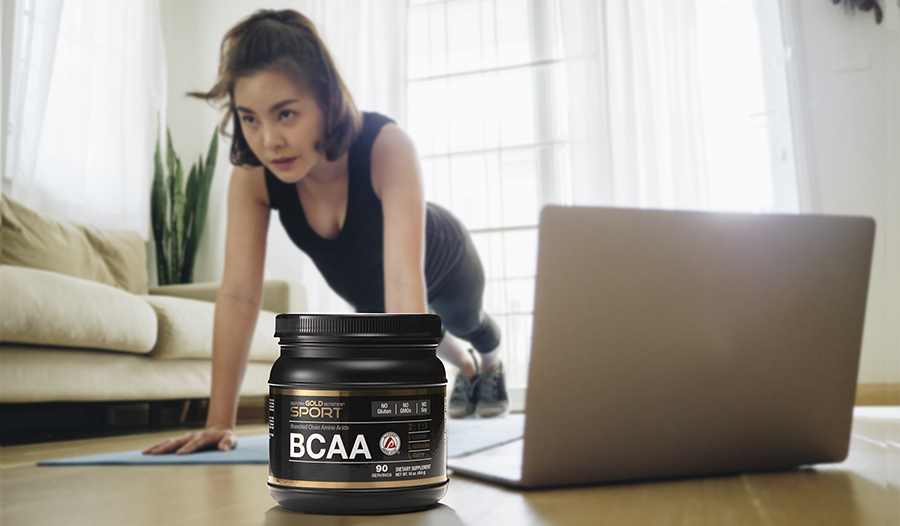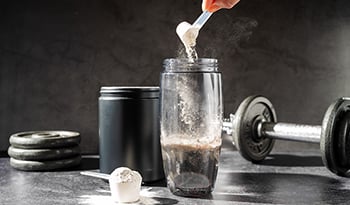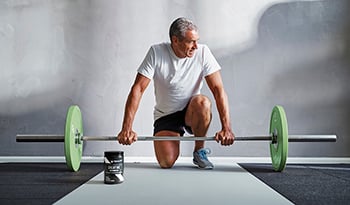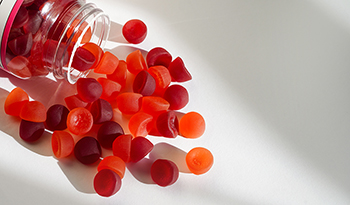Top 9 sportovních doplňků - mohou pomoci maximalizovat sportovní výkon?

Ne každý může být profesionálním sportovcem. Téměř každý však může zlepšit své fyzické zdraví a odolnost, aby se stal sportovnějším. S využitím našich vnitřních konkurentů se můžeme neustále vyzývat, abychom se stali zdravějšími, zdatnějšími a duševně a fyzicky vyváženějšími v našem životě cvičením každodenního cvičení.
9 Zdravotní přínosy cvičení
- Lepší kvalita života
- Lepší zdraví srdce a cév
- Nižší krevní tlak
- Lepší zdraví mozku a paměť
- Lepší pocit pohody
- Posílení kostí a svalů
- Snížená tuhost kloubu
- Snížené riziko pádu
- Lepší kvalita spánku
4 Různé druhy cvičení
Účastnit se alespoň 150 minut týdně mírné fyzické aktivity je nejen dobré pro srdce a cévní pohodu, ale také skvělé pro mozek, paměť a prevenci běžných onemocnění. Jedním z nejlepších způsobů, jak toho dosáhnout, je zavázat se 30 minut denně, pět až šest dní v týdnu. Fyzické cvičení je jednou z nejlepších a nejméně nákladných činností, kterých se člověk může účastnit.
Podle sportovních vědců existují čtyři různé typy cvičení:
- Vytrvalost (chůze, jogging, turistika, plavání, tenis, běh)
- Síla (vzpírání, odporové pásy, stoupání po schodech)
- Rovnováha (jóga, dřep s jednou nohou, prkna atd.)
- Flexibilita (výpady, protahování hamstringu atd.)
Fyzické přínosy cvičení
Je dobře známo, že cvičení má pozitivní vliv na svalovou sílu a celkový tón. Studie z roku 2017 dospěla k závěru: „Cvičení má střední až velké účinky na svalovou sílu, složení těla, fyzické fungování a zánět u starších dospělých.“ Je zřejmé, že výhody nejsou omezeny na starší dospělé, ale vztahují se na každého člověka, který se účastní pravidelné fyzické aktivity. Na opačném konci může být sedavý životní styl velmi nebezpečný a pravděpodobně sníží celkovou kvalitu života a zároveň zkrátí životnost.
Duševní přínosy cvičení
Studie ukázaly, že cvičení zvyšuje důležitý protein v mozku nazývaný neurotrofický faktor odvozený z mozku (BDNF) nebo abrineurin. Tento protein byl poprvé izolován v mozku prasat v roce 1982 vědci Yves-Alain Barde a Hans Thoenen. BDNF pomáhá mozku vytvářet novou paměť a je také důležitý při udržování dlouhodobé paměti.
Studie z roku 2010 dospěla k závěru, že pravidelné aerobní cvičení pomáhá zlepšit pozornost, rychlost zpracování mozku, výkonné funkce a paměť. Následná studie z roku 2014 prokázala, jak BDNF doslova pomáhá vytvářet nové mozkové synapse nebo nervová spojení. Takto vzniká nová paměť.
Nakonec studie z roku 2016 také ukázala, že cvičení nejen pomáhá s kognitivními funkcemi, ale může také pomoci předcházet neurologickým stavům, jako je Alzheimerova a Parkinsonova choroba. Cvičení je také dobře známo, že pomáhá těm, kteří mají příznaky úzkosti a deprese.
9 Běžné doplňky k cvičení
Ve snaze dosáhnout trochu větší konkurenční výhody, mnozí, kteří pravidelně cvičí a zvedají závaží, budou užívat určité doplňky stravy. Budeme diskutovat o vědě, která za tím stojí, a uvidíme, co studie říkají pro následující.
Beta-alanin
Beta-alanin je neesenciální aminokyselina. Je považován za „nepodstatný“, protože tělo je schopno jej vyrobit. Někteří se však domnívají, že nemusí být produkován na optimálních úrovních biologicky, a proto jej někteří sportovci doplní. Beta-alanin zlepšuje hladinu karnosinu ve svalech. Předpokládá se, že karnosin pomáhá snižovat hromadění kyseliny během cvičení, což je příčina svalové únavy. Mnozí, kteří užívají tento doplněk, si všimnou zlepšeného výkonu při námaze. Co však studie naznačují?
Studie z roku 2017 hodnotila 23 vysoce trénovaných sportovců juda. Polovina dostala beta-alanin, zatímco druhá polovina dostala placebo. Studie trvala čtyři týdny a byly měřeny základní úrovně výkonnosti. Na konci studie vědci dospěli k závěru, že „4 týdny suplementace beta-alaninem účinně zvyšují výkon související s judem u vysoce trénovaných sportovců.“ Studie z roku 2013 také zaznamenala zlepšení výkonu u cyklistů, kteří dostávali také čtyři týdny suplementace beta-alaninem.
Následná studie z roku 2017 dospěla k závěru: „Zdá se, že suplementace beta-alaninem zlepšuje vnímanou námahu a biochemické parametry související se svalovou únavou a bylo nalezeno méně důkazů o zlepšení výkonu“
Nakonec studie z roku 2018 dospěla k závěru, že suplementace beta-alaninem u 60letých mužů „zvýšila cvičební kapacitu a eliminovala poklesy výkonných funkcí vyvolané vytrvalostním cvičením pozorované po zotavení“. Jedná se o doplněk, který je určen pro každého dospělého, který chce zlepšit efektivitu cvičení.
Doporučená dávka: Podle pokynů na štítku
Valin, isoleucin, leucin (BCAA)
Valin, isoleucin a leucin jsou známé jako aminokyseliny s rozvětveným řetězcem (BCAA), což odkazuje na „rozvětvenou“ povahu jejich molekulární struktury. Vědci zjistili, že suplementace BCAA může pomoci při syntéze svalových bílkovin a růstu svalové hmoty, podporuje regeneraci svalů a snižuje svalovou únavu, zejména po tréninku.
Mezi další výhody patří:
- Potlačení chuti k jídlu
- Regulace imunitního systému
- Pomoc při regeneraci svalové tkáně
- Zvýšená vytrvalost při cvičení
Přírodní zdroje BCAA zahrnují červené maso, mléčné výrobky, luštěniny, ořechy, zrna a semena. Doporučená dávka BCAA je přibližně 2-4 gramy za hodinu, během cvičení a bezprostředně po, během období zotavení.
Kreatin
Kreatin je jedním z nejběžnějších doplňků užívaných těmi, kteří zvedají závaží. Kreatin dosáhl popularity v 90. letech minulého století a je aminokyselinou používanou především svaly a mozkem. Celkově se ukázalo, že je bezpečný a užívá se především ke zvýšení vytrvalosti a svalové hmoty.
Studie z roku 2003 ukázala, že kreatinin může pomoci zvýšit celkovou svalovou hmotu u těch, kteří cvičili těžký odporový trénink. Kromě toho studie z roku 2011 také diskutovala o potenciálních výhodách kreatinu. Patří mezi ně zvýšený výkon sprintu, pracovní kapacita a svalová hmota spolu se zvýšenou syntézou glykogenu a zlepšenou regenerací.
L-arginin
L-arginin je aminokyselina, která je považována za stavební kámen proteinů. Primárně se vyskytuje v červeném mase, mořských plodech, drůbeži a mléčných výrobcích a je považován za poloesenciální nebo podmíněně esenciální aminokyselinu. L-arginin je prekurzorem NO nebo oxidu dusnatého, silného vazodilatátoru krevních cév.
Podle studií může být L-arginin prospěšný při snižování krevního tlaku. Kromě toho může pomoci zlepšit průtok krve v celém těle a potenciálně poskytnout příznivé účinky sportovcům.
Ve studii z roku 2015 , ve které hodnoceným subjektům byly podávány jak BCAA, tak L-arginin, vědci dospěli k závěru, že kombinace by mohla zlepšit sportovní výkon u dobře trénovaných sportovců zmírněním únavy. Studie z roku 2002 ukázala, že L-arginin může snížit hromadění kyseliny mléčné a amoniaku po namáhavém cvičení.
Nakonec studie z roku 2021 dospěla k závěru, že „suplementace L-argininem by mohla zvýšit VO2 max u zdravých lidí.“ To je důležitý ukazatel spotřeby kyslíku během cvičení.
L-karnitin
L-karnitin je důležitá aminokyselina nacházející se ve vysoké koncentraci jak ve svalech, tak v mozku. Hraje také důležitou roli při výrobě energie a metabolismu.
Studie z roku 1995 ukázala, že L-karnitin může zlepšit pohybovou kapacitu u pacientů se zhoršenou tolerancí cvičení.
Studie z roku 2006 ukázala, že ti s plicním onemocněním, kterým byly podávány 2 gramy L-karnitinu denně po dobu šesti týdnů, si vedli lépe při testování cvičení ve srovnání s těmi, kterým byla podávána placebová pilulka. Navíc ti, kterým byl podáván L-karnitin, měli během tréninku nižší hladiny kyseliny mléčné ve svalech.
Nakonec studie v roce 2000 pacientů se srdečními chorobami ukázala, že L-karnitin zlepšil jejich trvání cvičení.
Doporučená dávka: Podle pokynů na štítku.
Glutamin
Glutamin je jednou z nejhojnějších volných aminokyselin přítomných v lidském těle. Je zodpovědný za mnoho metabolických procesů. Glutamin je považován za „glukogenní“ aminokyselinu, což znamená, že pokud a pokud by vaše tělo vyžadovalo další zdroje energie ve formě glukózy, tělo může přeměnit glutamin na glukózu a poskytnout tělu energii, kterou potřebuje.
Podle studiívedlo suplementace glutaminem k rychlejšímu zotavení a výrazně menší bolestivosti po intenzivním cvičení. Proto má glutamin přímý účinek na opětovný růst a funkci svalů, stejně jako správnou funkci imunitního systému.
Přestože vaše tělo přirozeně produkuje glutamin, v dobách extrémního stresu, jako je cvičení nebo nemoc, se tělo může dostat do deficitu. Vědci se domnívají, že lidské tělo uvolňuje hlavní stresový hormon, kortizol, který snižuje ukládání glutaminu. Proto je v době vysokého stresu důležité být si vědom nedostatku glutaminu.
Mezi přírodní zdroje glutaminu patří kuře, ryby, zelí, špenát, mléčné výrobky, tofu, čočka, fazole. Doporučená dávka pro doplnění: Podle pokynů na štítku.
Vzorce před tréninkem
Formule před tréninkem jsou běžně konzumovány sportovci. Tyto vzorce obvykle obsahují základní elektrolyty, jako je draslík, hořčík, sodík kromě vitamínů B. Dále často obsahují směs karnitinu, beta-alaninua kreatinu. Kofein a taurin jsou další běžné přísady, protože mohou sportovci poskytnout trochu extra povzbuzení. Ti, kteří jsou citliví na kofein, by se měli vyhnout před tréninkem, zejména pokud cvičí večer.
Bylo prokázáno, že kofein pomáhá zlepšit výkon a trvání cvičení. Studie z roku 2013 dospěla k závěru, že kofein konzumovaný hodinu před cvičením může zlepšit vytrvalost a výkon cvičení. Dále další studie z roku 2013 dospěla k závěru, že „akutní požití kofeinu nejen zvyšuje odolnost cvičení vůči selhání, ale také snižuje vnímání námahy a bolesti svalů.“ Jinými slovy, ti, kteří konzumovali kofein před cvičením, měli nejen větší vytrvalost, ale také cítili méně bolesti při cvičení.
Tyto pravděpodobné výhody vysvětlují, proč mnoho sportovců přidává nápoj před tréninkem jako součást své rutiny.
Hořčík
Hořčík je důležitý minerál a enzymový „kofaktor“ zapojený do více než 350 chemických reakcí v lidském těle. Rozhodující je dostatečný příjem potravin bohatých na hořčík, které zahrnují zelenou listovou zeleninu. Často strava nestačí a je nutný doplněk.
Některé léky zvyšují riziko nedostatku hořčíku. Mezi tyto léky patří reduktory kyseliny (tj. omeprazol, pantoprazol, ranitidin) a diuretické vodní pilulky (tj. furosemid, triamteren, hydrochlorothiazid).
Mezi časté nežádoucí účinky nedostatku hořčíku patří:
- Svalové křeče
- Záškuby očních víček
- Palpitace srdce
- Zácpa
- Hyperaktivní močový měchýř
Ti, kteří pravidelně cvičí a potí se, mají často nízký obsah hořčíku. Chronický stres může také snížit hladinu hořčíku. Kromě stravy bohaté na zeleninu je třeba zvážit doplněk hořčíku. Navzdory reklamním tvrzením jsou sportovní nápoje obvykle špatným zdrojem hořčíku.
Doporučená dávka: Chelát hořečnatý (aspartát hořečnatý, citrát hořečnatý, malát hořečnatý) by měl být užíván denně - 125 mg až 500 mg. Pokud se u Vás objeví řídká stolice, snižte dávku. Lze také zvážit formulaci oxidu hořečnatého, ale není také absorbována.
Syrovátkový protein
Syrovátkový protein je běžný doplněk používaný těmi, kteří pravidelně cvičí, a často se používá jako náhrada jídla těmi, kteří se snaží udržet nebo zhubnout. Syrovátka je také oblíbeným zdrojem bílkovin pro ty, kteří se pokoušejí budovat svaly.
Zdravotní přínosy syrovátkové bílkoviny zahrnují:
- Vynikající zdroj bílkovin
- Pomáhá při hubnutí
- Růst svalů
- Snižuje krevní tlak
- Snižuje hladinu cukru v krvi
- Snižuje hladinu cholesterolu
- Pomáhá játrům odstraňovat toxiny
- Pomáhá snižovat chuť na hlad
Studie z roku 2017 ukázala, že syrovátkový protein může pomoci snížit zranění u maratonských a amatérských běžců, zatímco studie z roku 2018 v British Journal of Sports Medicine ukázala, že suplementace syrovátkových bílkovin pomáhá zlepšit svalovou sílu a svalovou hmotu. Syrovátkový protein je skvělým doplňkem ovocného a zeleninového koktejlu a něčeho, co pravidelně konzumuji sám.
Doporučená dávka: Podle pokynů na štítku
Odkazy:
- Liberman K, Forti LN, Beyer I, Bailmans I. Účinky cvičení na svalovou sílu, složení těla, fyzické fungování a zánětlivý profil starších dospělých: systematický přehled. Curr Opin Clin Nutr Metab Care. 2017 Jan; 20 (1) :30-53
- Etnier JL, Wideman L, Labban JD, Piepmeier AT, Pendleton DM, Dvorak KK, Becofsky K. Účinky akutního cvičení na paměť a neurotrofický faktor odvozený z mozku (BDNF). J Sport Exerc Psychol. 2016 srpen; 38 (4): 331-340.
- Smith PJ, Blumenthal JA, Hoffman BM a kol. Aerobní cvičení a neurokognitivní výkon: metaanalytický přehled randomizovaných kontrolovaných studií. Psychosom Med. 2010; 72 (3): 239-252.
- Leal G, Compress D, Duarte CB. BDNF indukovaná lokální syntéza proteinů a synaptická plasticita. Neurofarmakologie. 2014 leden; 76 Pt C: 639-56
- Walsh J. J., Čakovský ME. Cvičení a cirkulující BDNF: Mechanismy uvolňování a důsledky pro návrh cvičebních intervencí. Aplikace Physiol Nutr Metab. 2018 listopad; 43 (11): 1095-1104.
- Rethorst CD, Trivedi MH. Doporučení založená na důkazech pro předepisování cvičení pro závažnou depresivní poruchu. J Psychiatr Pract. 2013 květen; 19 (3) :204-12.
- od Andrade Kratz C, de Salles Painelli V, de Andrade Nemezio KM, da Silva RP, Franchini E, Zagatto AM, Gualano B, Artioli GG. Suplementace beta-alaninu zvyšuje výkon související s judem u vysoce trénovaných sportovců. J Sci Med Sport. 2017 duben; 20 (4): 403-408.
- Howe ST, Bellinger PM, vrtačka MW, Shing CM, Fell JW. Vliv suplementace beta-alaninem na izokinetickou sílu a cyklistický výkon u vysoce trénovaných cyklistů. Int J Sport Nutr Exerc Metab. 2013 prosinec; 23 (6): 562-70.
- Berti Zanella P, Donner Alves F, Guerini de Souza C. Účinky suplementace beta-alaninem na výkon a svalovou únavu u sportovců a ne-sportovců různých sportů: systematický přehled. J Sports Med Phys Fitness. 2017 září; 57 (9): 1132-1141.
- Furst T, Massaro A, Miller C, Williams BT, LaMacchia ZM, Horvath PJ. Suplementace β-alaninu zvýšila fyzickou výkonnost a zlepšila výkonnou funkci po vytrvalostním cvičení u jedinců středního věku. J Int Soc Sports Nutr. 2018 11. července; 15 (1) :32.
- Brose A, Paříž G, Tarnopolský MA. Suplementace kreatinem zvyšuje izometrickou sílu a zlepšení složení těla po silovém cvičení u starších dospělých. J Gerontol A Biol Sci Med Sci.2003 Jan; 58 (1): 11-9.
- Kreider RB, Jung YP. Suplementace kreatinem ve cvičení, sportu a medicíně. J Exerc Nutr Biochem. 2011; 15 (2): 53—69.
- Čang CK, Čang Čen KM, Čang JH, Huang MH, Liang YC, Liu TH. Aminokyseliny s rozvětveným řetězcem a arginin zlepšují výkon ve dvou po sobě jdoucích dnech simulovaných házenkářských her u mužských a ženských sportovců: randomizovaná studie. PLoS One. 2015; 10 (3): e0121866. Publikováno 2015 24. března.
- L-arginin snižuje nárůst plazmatického laktátu a amoniaku vyvolané cvičením. Schaefer A, Piquard F, Geny B, Doutreleau S, Lampert E, Mettauer B, Lonsdorfer J Int J Sports Med. 2002 srpen; 23 (6): 403-7.
- Rezaei S, Gholamalizadeh M, Tabrizi R, Nowrouzi-Sohrabi P, Rastgoo S, Doaei S. Vliv suplementace L-argininu na maximální příjem kyslíku: Systematický přehled a metaanalýza. Physiol Rep. 2021 Únor; 9 (3): e14739. doi: 10.14814/phy2.14739. PMID: 33587327; PMCID:PMC7883807.
- Japonský srdeční deník. 1995 květen; 36 (3): 319-31. doi: 10.1536/ihj.36.319.
- Borghi-Silva A, Baldissera V, Sampaio LM, Pires-dilorenzo VA, Jamami M, Demonte A, Marchini JS, Costa D. L-karnitin jako ergogenní pomůcka pro pacienty s chronickou obstrukční plicní chorobou podrobenými tréninkovým programům celého těla a dýchacích svalů. Braz J Med Biol Res. 2006 duben; 39 (4): 465-74.
- Iyer RN, Khan AA, Gupta A, Vajifdar BU, Lokhandwala YY. L-karnitin mírně zlepšuje toleranci cvičení u chronické stabilní anginy pectoris. J Assoc Physicians Indie. 2000 listopad; 48 (11): 1050-2.
- Legault Z, Bagnall N, Kimmerly DS. Vliv perorálního suplementace L-glutaminem na zotavení svalové síly a bolestivost po jednostranném excentrickém cvičení s prodloužením kolena. Int J Sport Nutr Exerc Metab. 2015 říjen; 25 (5): 417-26.
- Hodgson AB, Randell RK, Jeukendrup AE. Metabolické a výkonnostní účinky kofeinu ve srovnání s kávou během vytrvalostního cvičení. PLoS One. 2013; 8 (4): e59561.
- Duncan MJ, Stanley M, Parkhouse N, Cook K, Smith M. Akutní požití kofeinu zvyšuje silový výkon a snižuje vnímanou námahu a vnímání bolesti svalů během cvičení odporu. Eur J Sport Sci 2013; 13 (4): 392-9.
- J Am Coll Nutr. 2017 říjen 31:1-11. doi: 10.1080/07315724.2017.1344591. Výhody syrovátkového proteinu
- Int J Med Sci. 2017 červen 22; 14 (7): 648-654.
- Britský žurnál sportovní medicíny. 2018 březen; 52 (6): 376-384.
VYLOUČENÍ ODPOVĚDNOSTI: Tento blog není určen ke stanovení diagnózy...

















































































 Obsah
Obsah
















